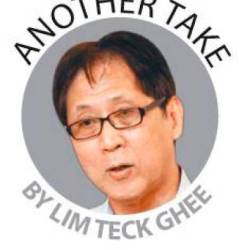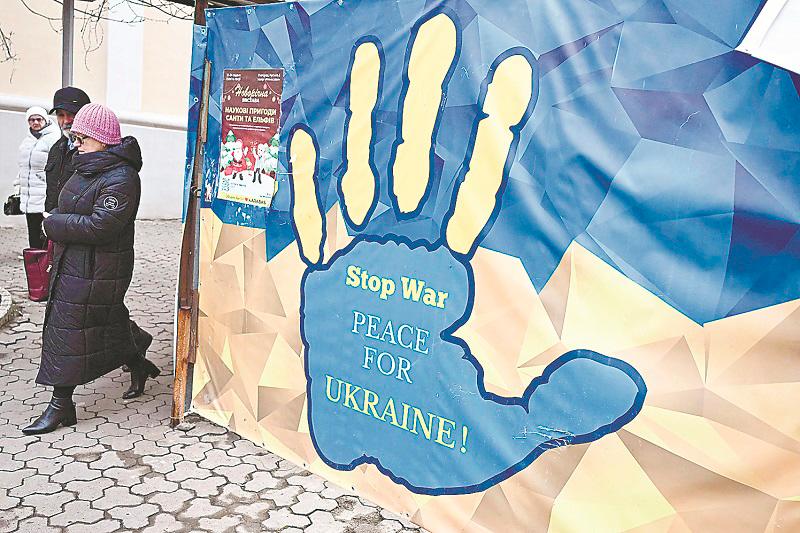A PICTURE paints a thousand words. The photo of President Donald Trump and Ukraine President Volodymyr Zelensky in conversation while attending the funeral ceremony of Pope Francis in Rome is the strongest indication that the US president may be close to fulfilling his first presidential promise: brokering a peace agreement to end the war between Ukraine and Russia.
Although details of the agreement are still being negotiated – for now, it is simply a truce pause – it will likely end with Russia retaining the Crimean region, which was the territorial flashpoint for the beginning of the war.
Looking further ahead, there is little doubt that the coming peace agreement will be a geopolitical game changer. It will enable Russian President Vladimir Putin – more than Trump – to declare victory with the de facto recognition of Russian control over areas of the Crimean and Donbas regions.
This is likely to be followed by the incorporation of the Crimea states into the Russian Federation.
The eclipse of Nato Putin has also been insistent that the agreement should include guarantees that Ukraine will not join Nato (North Atlantic Treaty Organisation), which he has repeatedly denounced as the instigator of the war. This may not be written explicitly into the final peace document but even if this exclusion clause does not appear, it is clear that, along with Ukraine, Nato is the biggest loser in this Trump-influenced but Putin-determined peace agreement.
Nato has not only been thwarted in its efforts to expand its influence along the eastern borders of countries neighbouring Russia but it is also now facing serious concerns, uncertainty and possible internal divisions – raising questions about the alliance’s ability to contain Russia effectively.
Although the organisation will continue to exist, its historical position in European security based on bringing down the Soviet Union initially and its successor since the end of the first Cold War has now been drastically compromised and undermined.
Already European nations have felt compelled to increase their defence capabilities leading to a more fragmented European security landscape.
The peace agreement will also bring into question the “open door” policy of Nato and make other countries that are looking to join the organisation feel less secure.
West normalises relations with Russia
Another key aspect is the waiving of the sanctions and other restrictions imposed on Russia since the war began. These have included sanctions in the financial and energy sectors, trade restrictions as well as restrictions on individuals and entities identified as associated with the war.
Measures such as restrictions on air travel and the banning of Russian airlines from the airspace of countries, and blocking of Russian-flagged vessels from accessing European Union ports are likely to be quickly abandoned. As are sanctions on exports and imports dealing with Russia.
More contentious is the unfreezing of Russian assets, including both state and private holdings held in the West.
Currently estimated to be potentially significantly higher than US$350 billion (RM1.52 trillion), Ukraine has insisted that these assets should be used as reparations payment for the war damage, which it sees itself as the victim.
Russia, however, is unlikely to agree to this demand and this may provide a sticking point delaying the conclusion of the peace agreement.
Geopolitical game changer
Regardless of when a peace agreement is reached or what its exact terms may be, including any concessions made by Ukraine and Russia to end the war, there is little doubt that Russia will have reasserted its status as a great power.
Russians and their allies and other supporters in the world, including in the West who have remained quiet, will see this as resembling Russia’s victory over Nazi Germany during
the second World War, despite the horrendous losses it has suffered.
Others may see the agreement as a pivotal historical turning point where great power decision-making sets precedents and brings about far-reaching consequences.
In February, soon after Marco Rubio’s appointment as secretary of state, he noted in a press interview: “It’s not normal for the world to simply have a unipolar power. That was an anomaly. It was a product of the end of the Cold War but eventually, you were going to reach back to a point where you had a multipolar world, multigreat powers in different parts of the planet. We face that now with China and to some extent Russia.”
Trump’s economic war
Together with its return to great power status, we should also see Russia play a key role in the establishment of a fairer, more equitable and independent rules-based international order, together with China and other countries of the global south.
As a founding member of BRICS (Brazil, Russia, India, China and South Africa), Russia played a key role in formalising the group in 2006 and has remained committed to the organisation since its inception – making it a formidable opponent to Western attempts to undermine BRICS as a counterweight to the Western-dominated global economic order.
Adding to this is Russia’s economic clout as a major global energy producer, particularly oil and gas, and its vast, largely untapped reserves of natural resources. Given these factors, it is not surprising that the US wants Russia to be on its side in the American struggle and battle to retain its diminished global geopolitical and economic supremacy.
We can expect the Trump administration to dangle concession after concession to Russia following the peace agreement even as the US pursues a tariff war ostensibly aimed at the rest of the world but especially targeting what Republican and Democratic party leaders identify as America’s existential enemy, China.
However, it is extremely unlikely that Putin will succumb to these offerings and other inducements,
and abandon his friends and allies as well as lose the respect he has won around the world in return for what the US may provide as part of its strategic geopolitical rapprochement with Russia.
Lim Teck Ghee’s Another Take is aimed at demystifying
social orthodoxy. Comments: letters@thesundaily.com










